Croatia EU Blue Card
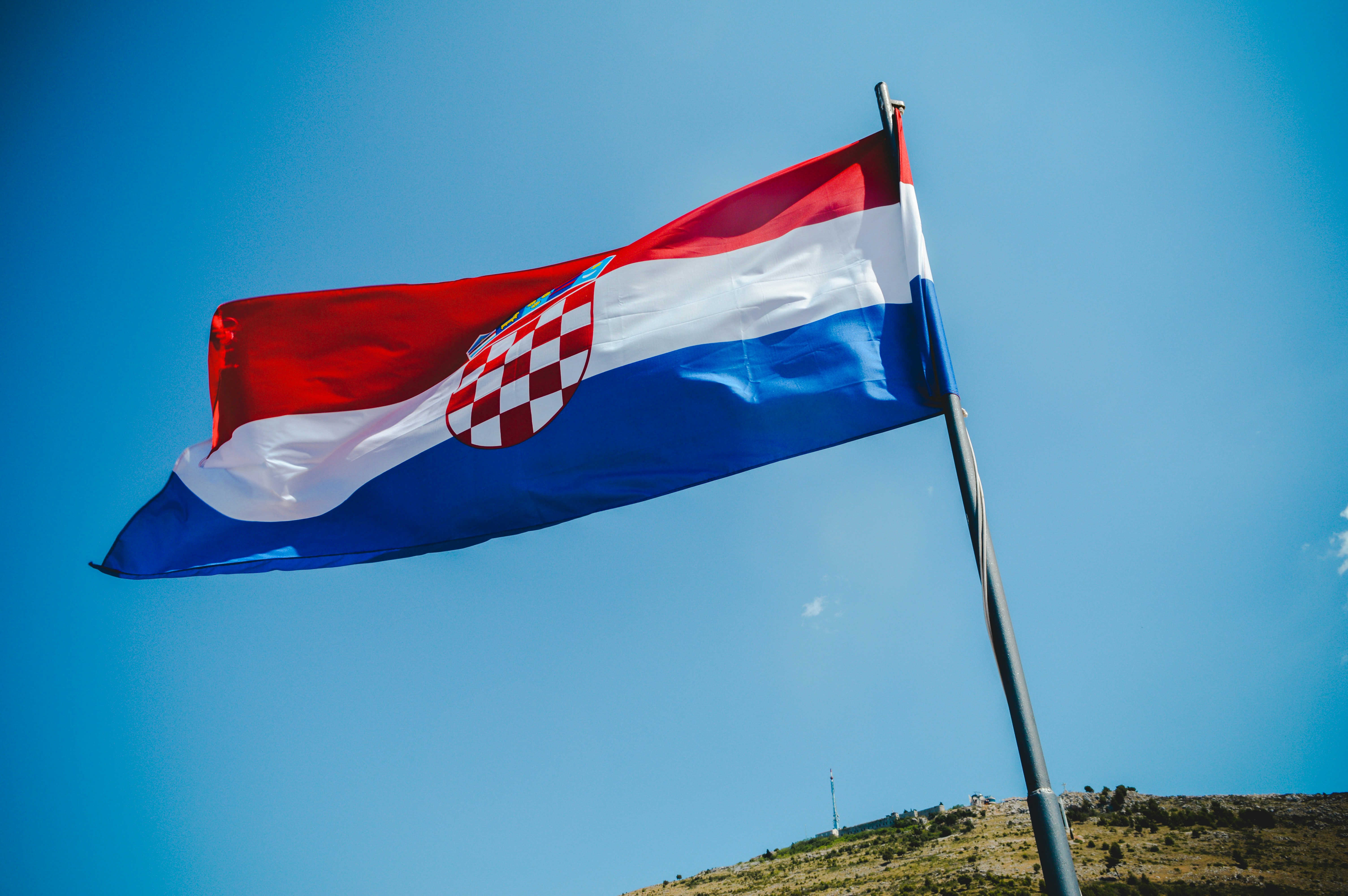
Quick Visa Facts
Visa length Up to 2 years.
Possible to extend? Yes, the EU Blue Card can be renewed before expiry if the holder continues to meet the requirements.
Who can apply? Highly qualified non-EU nationals.
Minimum Income Requirements Gross annual salary of at least EUR 24,845.64 (≈ EUR 2,070.47 per month)
Time for visa applications Typically 30 to 60 days.
Want to know if you can apply?
Complete a visa quiz and see if you qualify!
Thinking about building your career in the heart of Europe, by the Adriatic Sea, no less? Croatia might be your next big move. As part of the European Union, Croatia offers a powerful opportunity for highly qualified professionals from outside the EU to live and work legally through the EU Blue Card program.
The Croatia EU Blue Card is designed for skilled experts who want to contribute their knowledge, gain international experience, and enjoy the country’s growing economy and Mediterranean lifestyle. All while benefiting from the stability and mobility that come with EU residence rights.
In this guide, we’ll break down everything you need to know about the EU Blue Card in Croatia: from who qualifies and how to apply, to what benefits you can expect once you arrive.
Whether you’re an IT professional, engineer, researcher, or healthcare specialist, here’s how you can make Croatia your new professional home through the EU Blue Card.
Croatia EU Blue Card Visa Overview
The EU Blue Card for Croatia is a residence and work permit designed for highly qualified non-EU citizens who wish to live and work in Croatia. It was introduced across the European Union under Council Directive 2009/50/EC and implemented in Croatia after the country joined the EU in 2013, with updated provisions aligning with national immigration law.
The Blue Card simplifies entry and residence for skilled professionals by combining both a work permit and a residence permit into a single document. It’s part of the EU’s strategy to attract global talent, making it easier for employers in Croatia to hire specialists from outside the European Economic Area.
Who Is It For?
The Croatia EU Blue Card is intended for third-country nationals (citizens of countries outside the EU, EEA, or Switzerland) who:
Hold a university degree or equivalent higher education qualification, or have recognized professional experience for regulated professions.
Have a binding job offer or work contract in Croatia lasting at least one year.
Will be employed in a highly qualified position with a salary that meets the national Blue Card threshold (set annually).
Meet the general conditions for residence in Croatia, such as valid health insurance and no security concerns.
This visa type is ideal for professionals in sectors like IT, engineering, healthcare, science, and research, where Croatia seeks to fill skill gaps with experienced international talent.
What Does It Allow You to Do?
Holding an EU Blue Card for Croatia allows you to:
Live and work legally in Croatia for the duration of your contract (plus up to three additional months).
Change employers after a certain period, subject to approval from the Croatian authorities.
Bring close family members through facilitated family reunification.
Move to another EU country under certain conditions after 12–18 months of residence.
Apply for long-term EU residence status after five years of continuous legal stay within the EU (with at least two years in Croatia).
In short, the EU Blue Card gives qualified professionals the freedom, stability, and career mobility to build a life in Croatia and across the European Union.
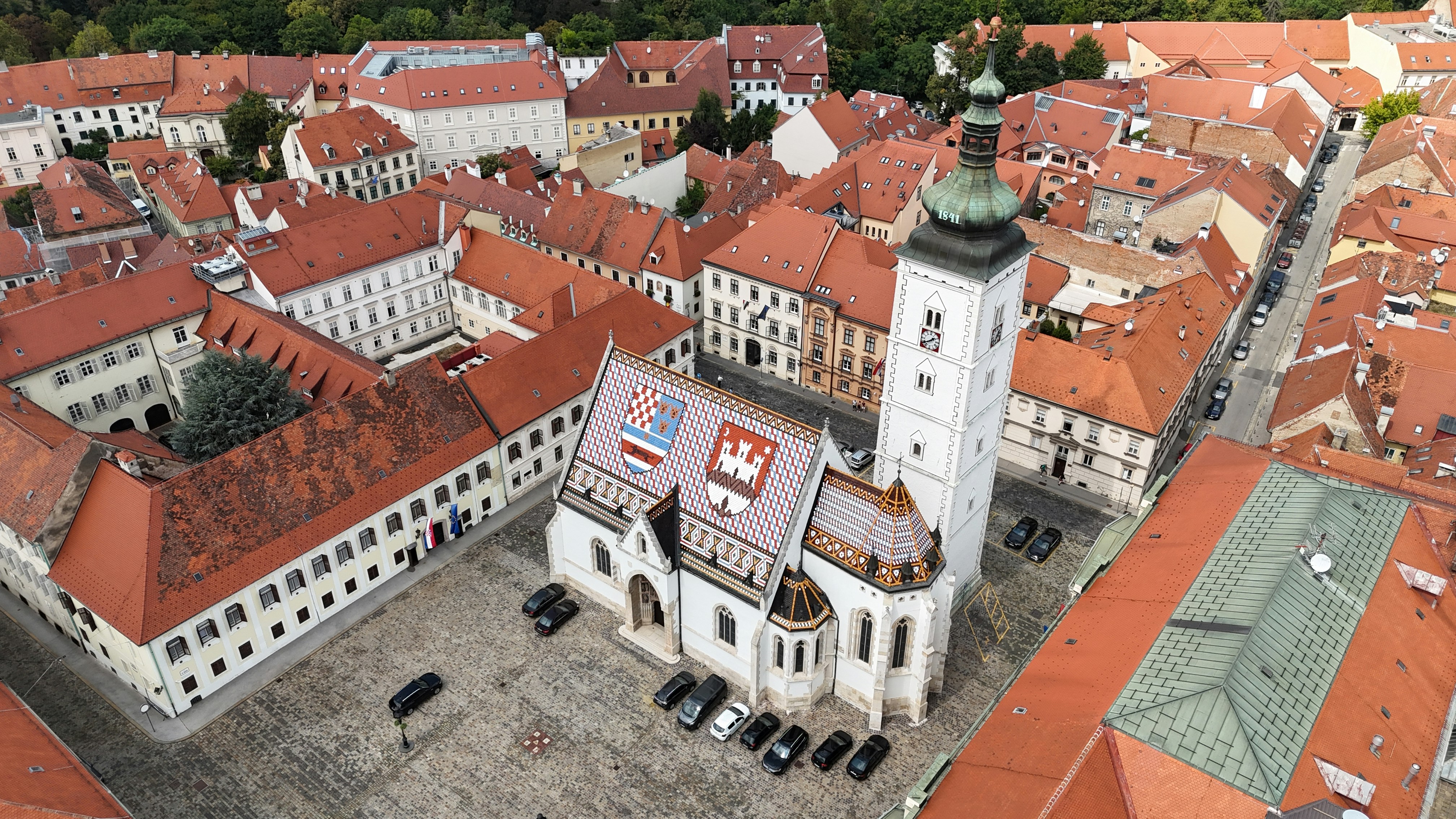
Croatia EU Blue Card Visa Requirements
To apply for an EU Blue Card in Croatia, you must prepare and submit a complete set of supporting documents. All documents must be in Croatian or officially translated and, where necessary, legalized or apostilled.
Basic required documents:
Completed application form for temporary stay and work of a highly qualified third-country national (EU Blue Card).
Valid passport (must be valid for at least three months beyond the intended stay).
Recent passport-size photographs (two, in color, meeting biometric standards).
Employment contract or binding job offer valid for at least one year, issued by a Croatian employer.
Proof of higher education qualifications (university diploma or equivalent) and recognition if required.
Proof of accommodation in Croatia (rental agreement, property ownership, or employer-provided housing).
Proof of payment of administrative fees for the Blue Card application and biometric residence permit.
Proof of health insurance covering the applicant in Croatia.
Clean criminal record certificate (from your home country or country of residence, usually not older than six months).
Proof of Financial Self-Sufficiency
Applicants must show they can financially support themselves while living in Croatia. This is typically proven through:
The employment contract showing a gross annual salary that meets or exceeds the minimum annual salary threshold for the EU Blue Card in Croatia — EUR 24,845.64 per year (≈ EUR 2,070.47 per month).
If necessary, provide bank statements or additional proof of income to demonstrate financial stability.
This ensures the applicant will not require public financial assistance during their stay.
Private Health Insurance
Before receiving a residence permit, you must have valid health insurance that covers you in Croatia. Accepted forms include:
Private health insurance from your home country or a Croatian provider that covers the duration of your stay; or
Enrollment in the Croatian health insurance system (HZZO) once employment begins.
Travel insurance is not accepted; it must be long-term residency health insurance. You can find our recommendations for the best health insurance plans for digital nomads here. This requirement guarantees continuous healthcare coverage from the moment you arrive in Croatia until full registration in the national system.
Recognition of Qualifications
If your occupation is regulated in Croatia (for example, medicine, law, engineering, or teaching), your foreign qualification must be officially recognized by the competent Croatian authority before you can apply. You may need to provide:
A diploma supplement or official transcript;
Translation of academic credentials into Croatian by a certified translator;
Recognition decision from the Croatian Agency for Science and Higher Education (Agencija za znanost i visoko obrazovanje).
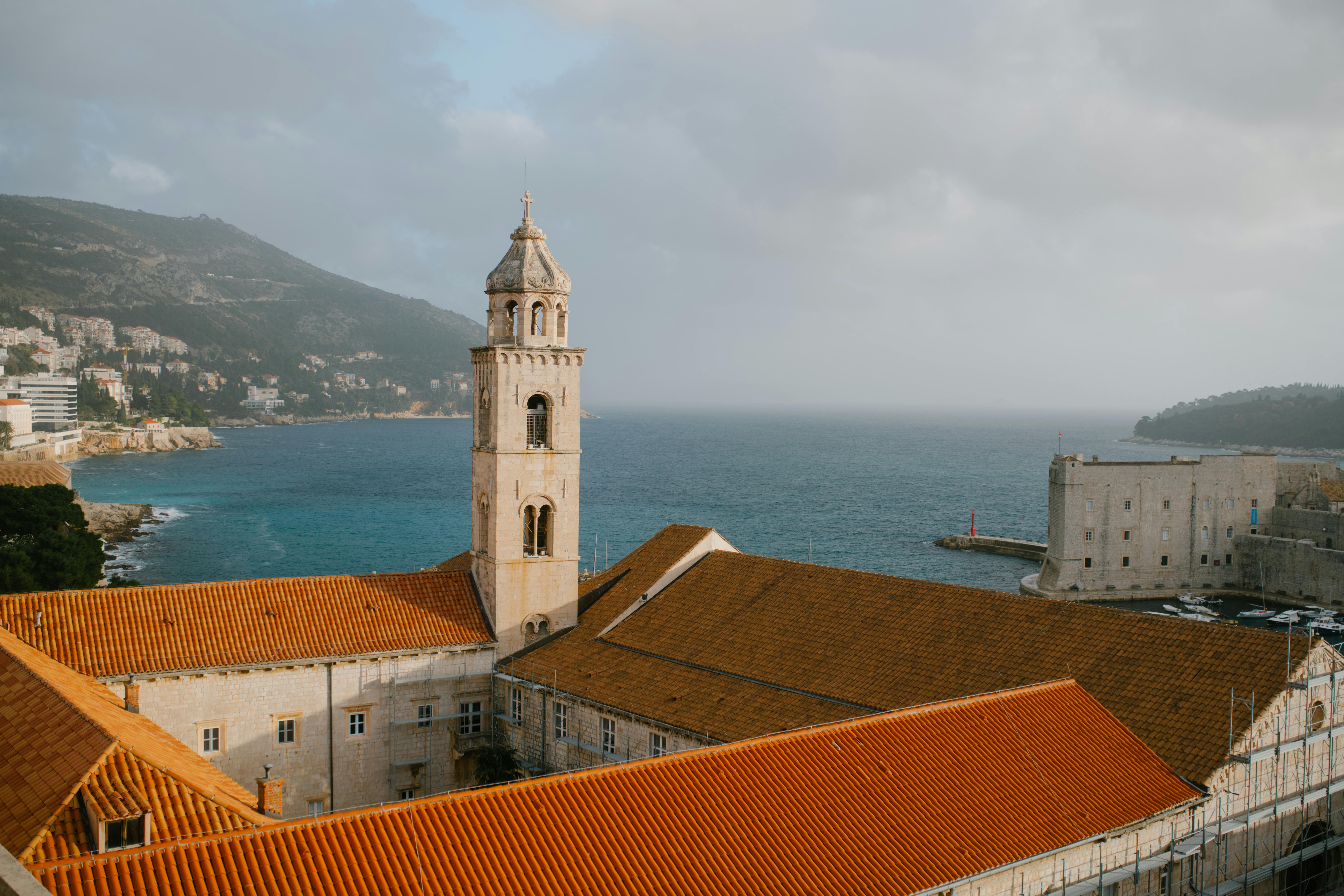
How to Apply for the EU Blue Card in Croatia – Step-by-Step Instructions
Applying for the EU Blue Card in Croatia involves several steps, from preparing your documentation to collecting your residence permit once approved. Below is a simplified step-by-step process to help you navigate the application smoothly.
Step 1: Prepare All Required Documents
The first step is to gather and prepare all the documents needed for your application. These include the completed application form, a valid passport, photographs, proof of employment, academic qualifications, and proof of accommodation, among others. All documents must be translated into Croatian by a certified translator and, when applicable, legalized or apostilled.
Before applying, ensure that your employment contract is valid for at least one year and that the position qualifies as “highly skilled.” It is also important to confirm that your gross annual salary meets or exceeds the official minimum threshold of EUR 24,845.64 per year (approximately EUR 2,070.47 per month), as published by the Croatian Ministry of the Interior.
Step 2: Submit Your Application
Once your documentation is complete, you can submit your application either abroad or within Croatia. If you are outside the country, you should apply at the nearest Croatian embassy or consulate in your place of residence.
If you are already in Croatia legally, you may apply directly at the local police administration office (MUP). During submission, you will present your documents, provide biometric data such as fingerprints and a signature, and pay the required administrative fees.
As of the latest official update, the fees amount to approximately EUR 74.32 for the application and EUR 31.85 for the biometric residence card.
Step 3: Wait for Processing
After submitting your application, the Ministry of the Interior will review and verify your documents. The processing time for an EU Blue Card in Croatia typically ranges from 30 to 60 days, although this can vary depending on the complexity of the case and the workload of the issuing authority.
During this period, the authorities may contact you if additional information or supporting evidence is required. It is advisable to monitor your application status and maintain communication with the relevant office to ensure a smooth process.
Step 4: Receive the Decision and Collect Your EU Blue Card
Once your application is approved, you will receive a formal notification from the police administration office or the Croatian diplomatic mission that handled your case. You must then collect your EU Blue Card in person.
The permit is typically issued for a period of up to two years, or for the duration of your employment contract plus an additional three months, whichever is shorter. If your application is refused, you will be informed of the reasons for the decision and given instructions on how to appeal within the legally prescribed period.
Step 5: Register Your Residence and Begin Work
After obtaining your EU Blue Card, you must register your residence address in Croatia within three days of arrival if you applied from abroad. Once you start working, you are also required to register with the Croatian Health Insurance Fund (HZZO) to ensure continuous health coverage. From this point, you are fully authorized to live and work in Croatia under the conditions of your Blue Card, enjoying the rights and benefits associated with EU-level residence status.
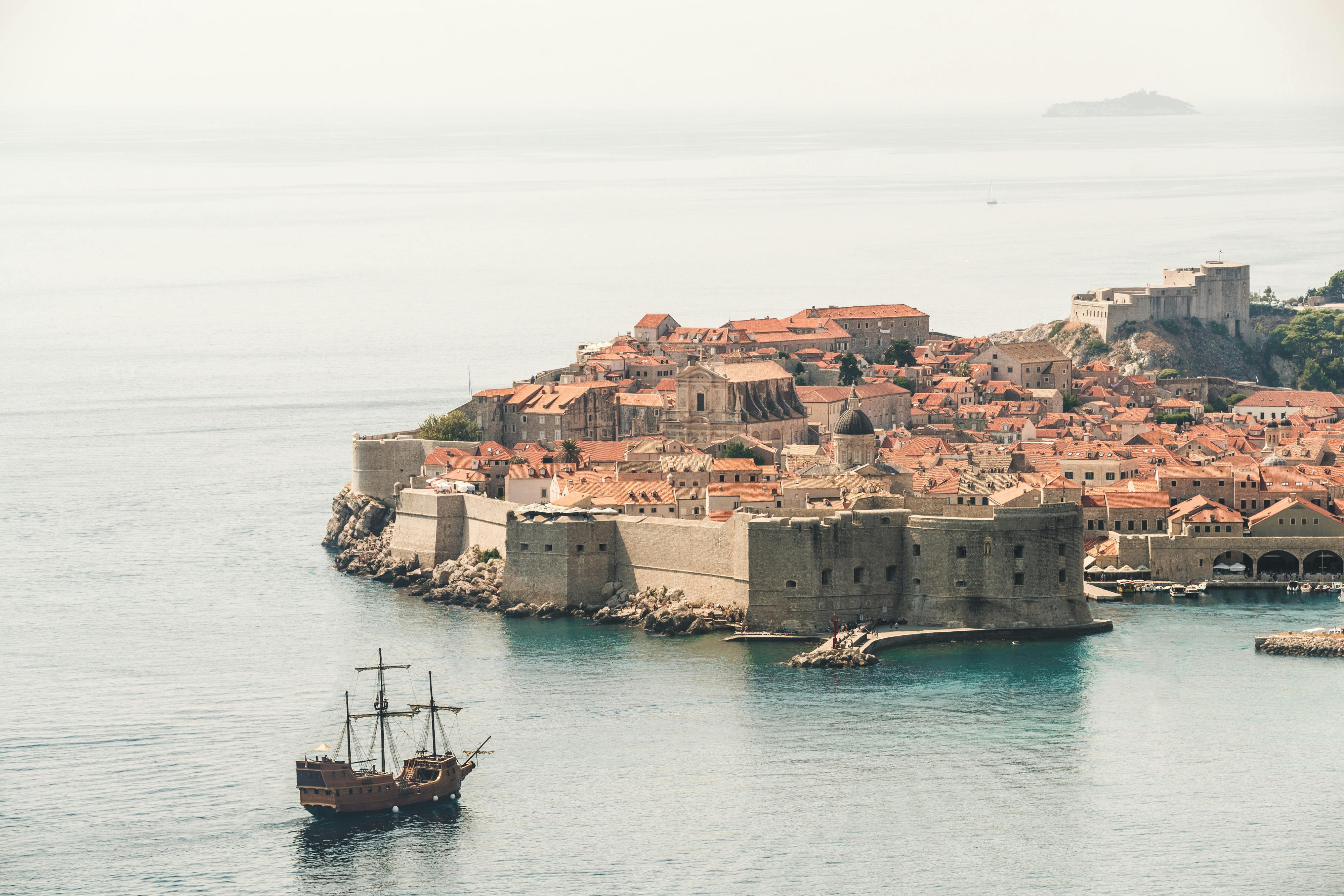
Croatia Stay Requirements
Once you are granted an EU Blue Card in Croatia, you must comply with certain conditions to maintain your legal status and residence rights. The card is normally issued for up to two years, or for the duration of your employment contract plus three months, whichever is shorter.
During your stay, you must remain employed in the position for which the Blue Card was issued. If you change employers or positions, you must first obtain approval from the Ministry of the Interior (MUP). For the first two years, job changes require formal notification and consent; after this period, switching employers becomes easier as long as the new role still meets Blue Card criteria.
To stay compliant, Blue Card holders must also:
Maintain a registered residential address in Croatia and report any changes to the local police administration.
Keep valid health insurance and a valid travel document for the entire duration of stay.
Submit renewal applications at least 30 days before the current permit expires to avoid interruptions.
Avoid long absences; you must not be outside Croatia for more than 12 consecutive months or more than 18 months in total during your Blue Card’s validity period.
Continuous residence under an EU Blue Card counts toward eligibility for long-term EU residence. You can apply for this status after five years of legal stay in the EU, provided you have spent at least two of those years in Croatia.
Finally, if your employment ends, you are allowed a grace period of up to three months to find a new job that meets the Blue Card requirements. Failure to secure new employment or meet financial and residence obligations within that time may result in the withdrawal of your permit.
By meeting these stay conditions, you maintain your right to live and work in Croatia as a highly qualified professional, ensuring stability, security, and a pathway toward permanent EU residence.
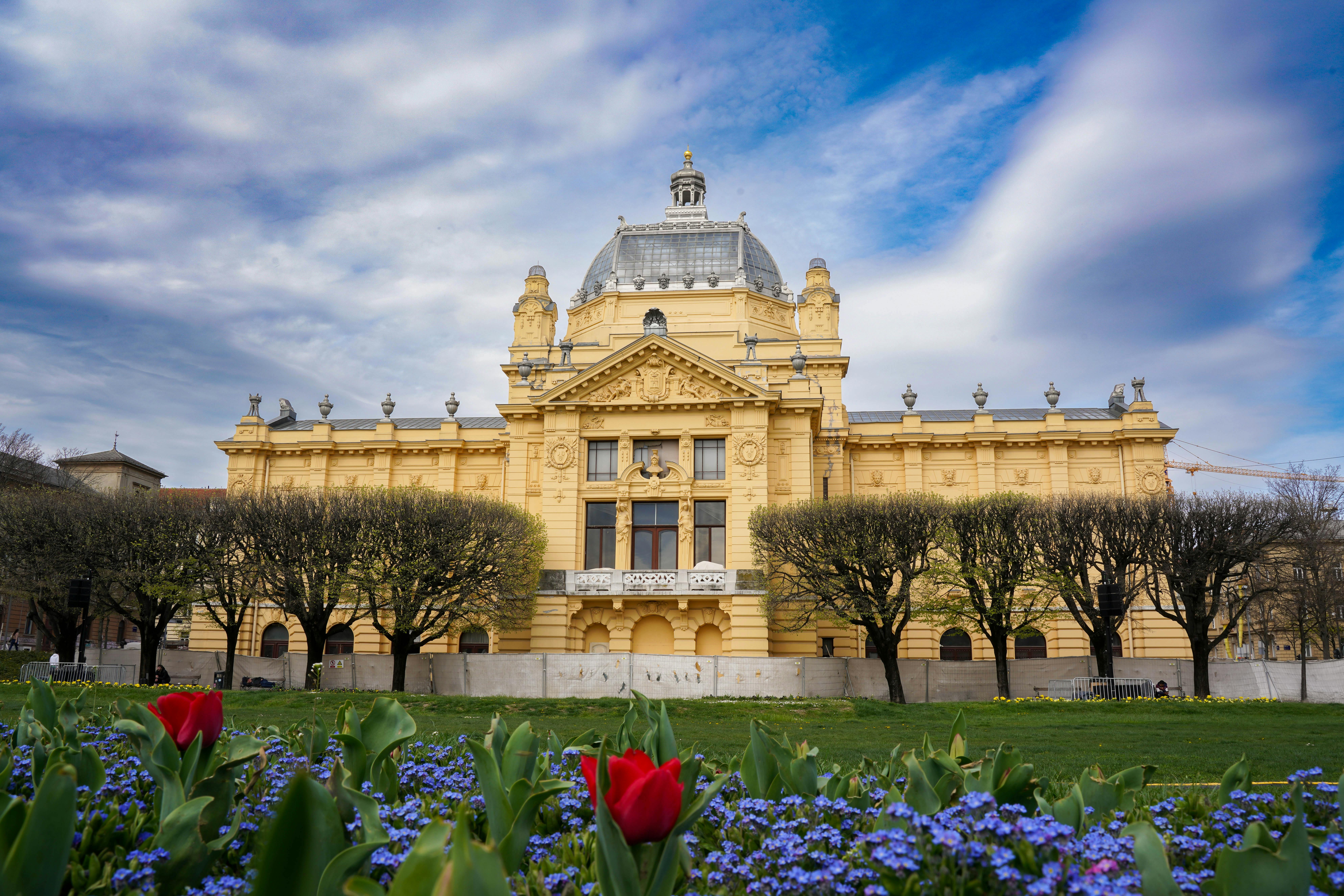
How Much Does the EU Blue Card Cost?
The total cost of obtaining an EU Blue Card in Croatia depends on where you apply (in Croatia or abroad) and whether additional services such as document translation, legalization, or qualification recognition are required. The Croatian Ministry of the Interior (MUP) sets the administrative fees, which must be paid at the time of application.
As of the latest official information, the basic government fees for the EU Blue Card are:
EUR 74.32 for the Blue Card application (administrative fee).
EUR 31.85 for the production of the biometric residence card.
EUR 9.29 for expedited issuance of the biometric card, if applicable.
If you are applying through a Croatian diplomatic mission or consulate abroad, small variations may occur due to consular service charges or local currency exchange rates. Applicants should confirm the exact fee amount at their chosen submission location before applying.
In addition to official fees, applicants should also budget for additional costs related to the preparation of documents, such as:
Document translation and certification, which typically costs between EUR 20–50 per document, depending on length and language.
Recognition of qualifications for regulated professions which may incur separate administrative fees depending on the Croatian authority involved.
Private health insurance, if not already covered by an employer, with costs varying by provider and coverage level.
Altogether, the average total cost of applying for an EU Blue Card in Croatia generally ranges from EUR 150 to 250, excluding any relocation or travel expenses.
These fees are subject to change, as they are adjusted periodically by the Ministry of the Interior. Therefore, it is strongly recommended to verify the latest amounts on the official MUP website or at your local Croatian consulate before submitting your application.

Taxes for People with an EU Blue Card
If you hold an EU Blue Card in Croatia, you are mostly considered a resident for tax purposes from the moment you register your residence. As a tax resident, you are liable to pay Croatian income tax on your worldwide income. This includes your salary, bonuses, and any additional income earned both within Croatia and abroad.
Croatia uses a progressive income tax system, which means that higher incomes are taxed at higher rates. As of 2025, the income tax rates range from 20% to 36%, depending on your annual earnings. In addition to income tax, employees are required to contribute to mandatory social security, which covers pension, health insurance, and unemployment benefits. The combined contributions typically range between 20% and 25% of your gross salary, with a portion paid by the employer and a portion by the employee.
Blue Card holders working in Croatia are also entitled to standard deductions and tax reliefs, such as allowances for dependents, health insurance contributions, and other eligible expenses. Your employer is responsible for withholding the appropriate income tax and social security contributions from your salary and remitting them to the Croatian tax authorities.
It is important for EU Blue Card holders to maintain accurate financial records and to file an annual tax return if required, especially if you have additional income outside your Croatian employment. Failure to comply with Croatian tax regulations can affect your legal residence status and may lead to penalties.
Finally, for professionals who may wish to work across the EU, Croatia has tax treaties with many countries to prevent double taxation, which can be beneficial if you maintain financial ties in your home country while living in Croatia. Always consult a qualified tax advisor to ensure compliance with both Croatian and international tax obligations.
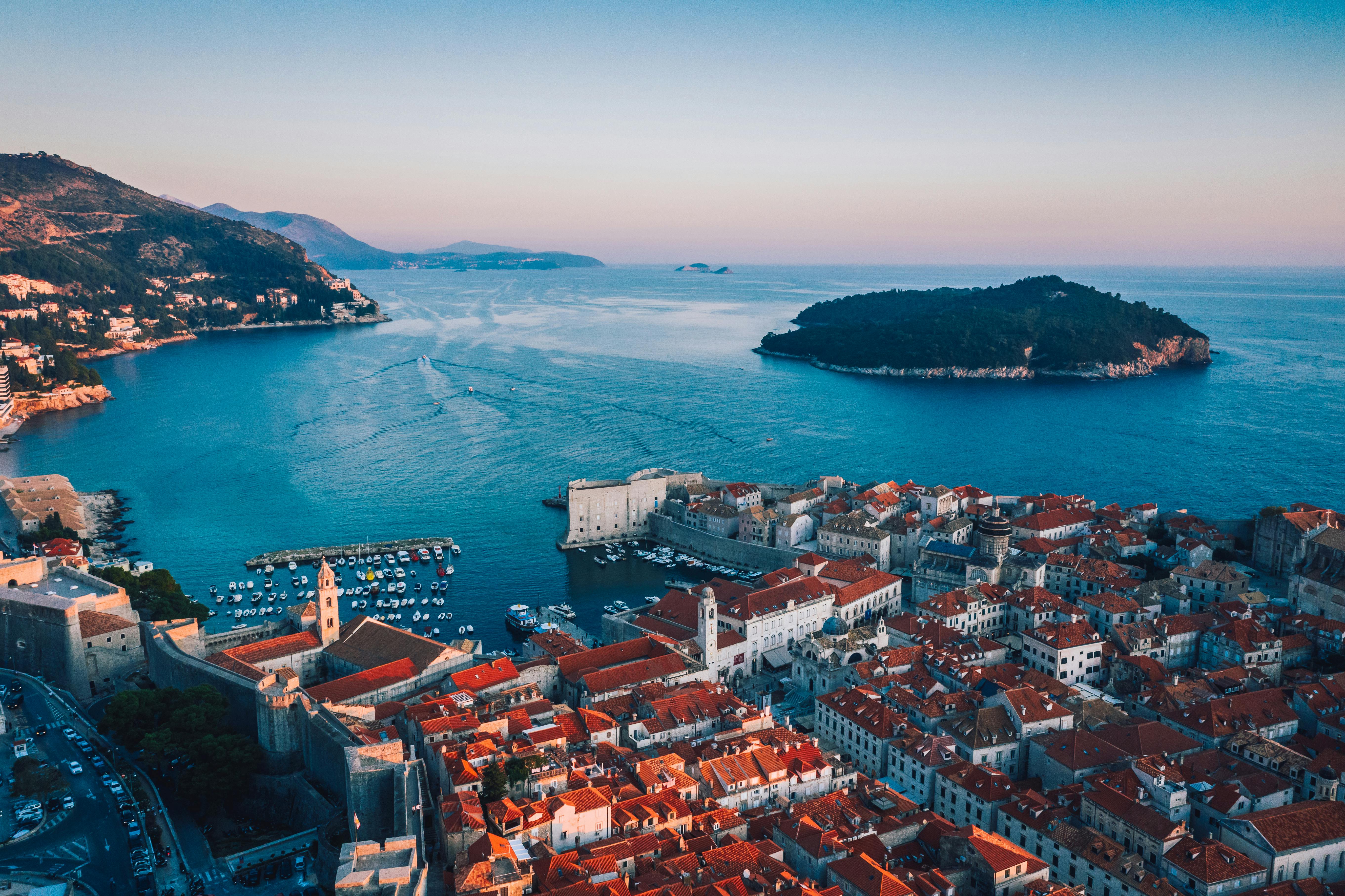
Living in Croatia with the EU Blue Card
Living in Croatia as an EU Blue Card holder offers the opportunity to enjoy a high quality of life in a country known for its stunning Adriatic coastline, historic cities, and vibrant cultural scene. As a highly qualified professional, you can benefit from the stability of legal residence and work, access to public services, and a safe environment for yourself and your family. Many expats appreciate Croatia’s balance between modern urban life in cities like Zagreb, Split, and Rijeka, and the relaxed coastal lifestyle, making it an ideal place for both career development and personal well-being.
Beyond lifestyle, holding an EU Blue Card gives you the flexibility to move within Croatia and, under certain conditions, across other EU member states. You have access to Croatian healthcare, education, and social security benefits, while also enjoying the protections and rights granted to all EU Blue Card holders. This status allows you to plan long-term, whether it’s pursuing career growth, enrolling children in schools, or eventually applying for long-term EU residence, providing both professional opportunities and a stable foundation for family life in Europe.
Best Cities to Live in Croatia
Choosing where to live in Croatia as an EU Blue Card holder depends on your lifestyle, career goals, and personal preferences. Croatia offers a mix of modern urban centers, historic towns, and scenic coastal cities, each with unique advantages for expats. Here are three of the best cities to consider:
Zagreb
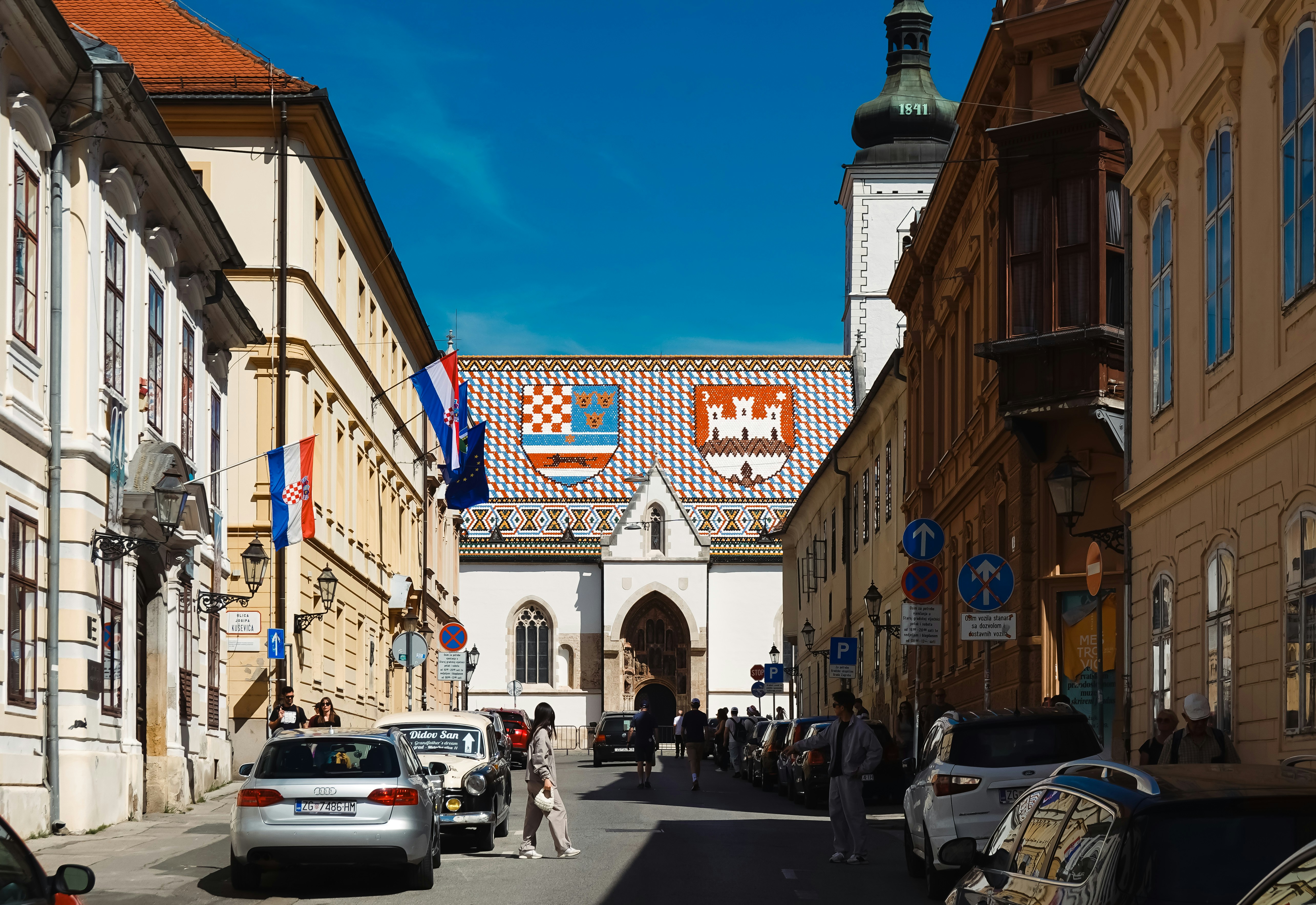
The capital city is Croatia’s economic and cultural hub, offering a wide range of employment opportunities for highly qualified professionals. Zagreb combines modern infrastructure with a rich history, providing access to top universities, healthcare facilities, and a vibrant social life. The city also has a well-developed public transportation network, international restaurants, and cultural events, making it ideal for those who enjoy urban living with a mix of tradition and modernity.
Split
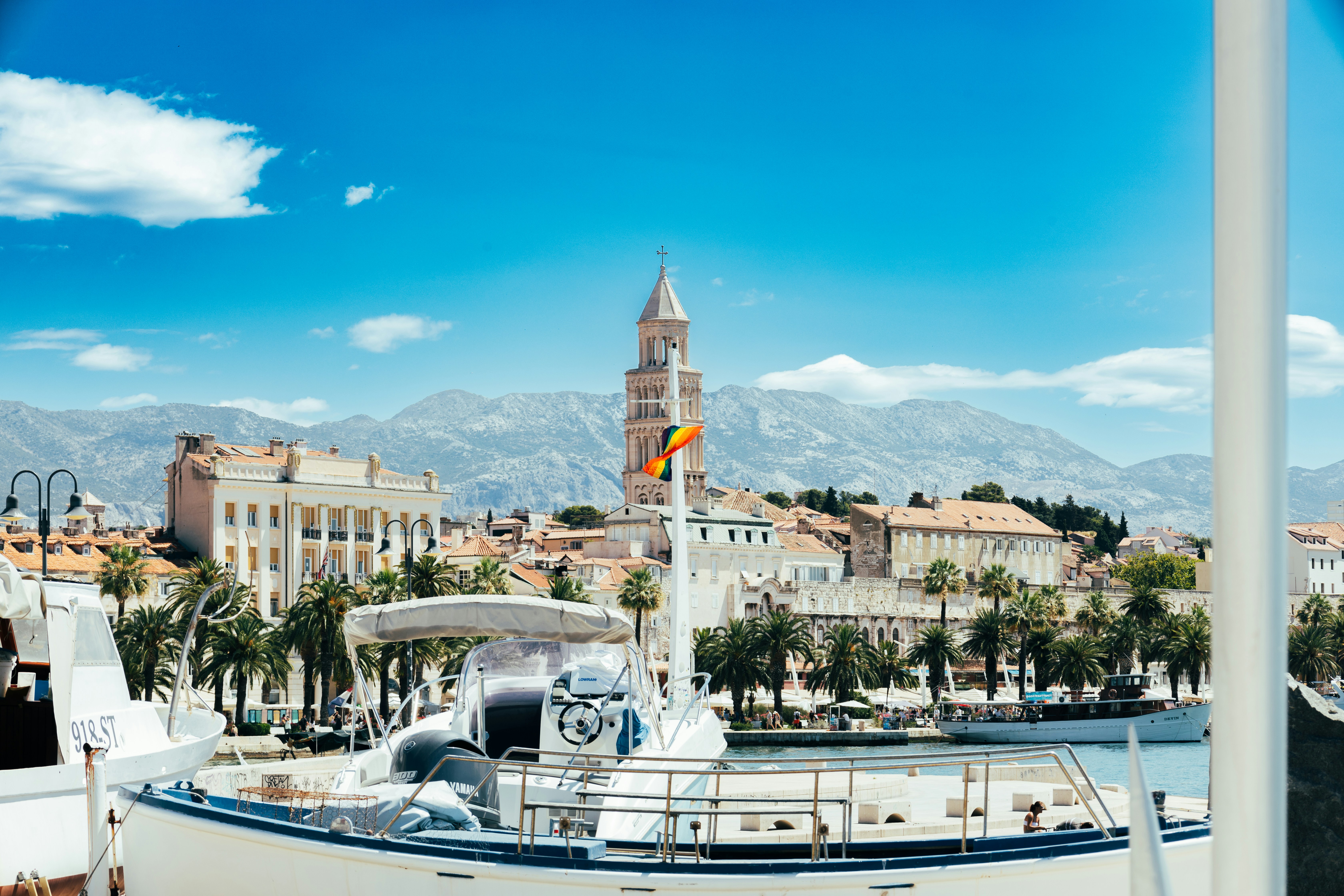
Located on the stunning Adriatic coast, Split is perfect for professionals who want to combine career opportunities with a relaxed coastal lifestyle. It is a growing business center with expanding tech, tourism, and service sectors, while also offering beautiful beaches, historic architecture, and a strong sense of community. Split provides an appealing balance between work and leisure, ideal for families and young professionals alike.
Rijeka
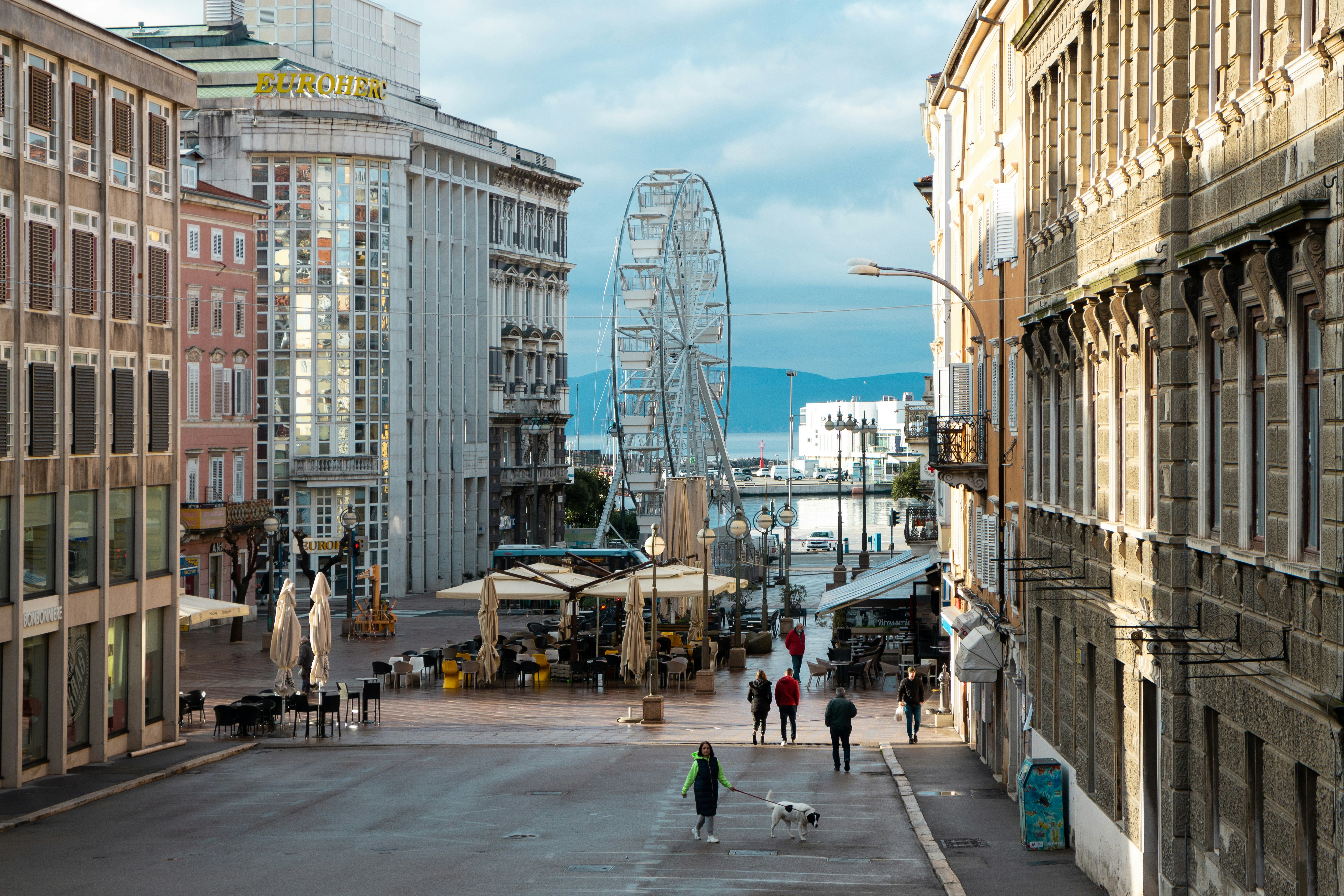
As Croatia’s main port city, Rijeka is a vibrant hub for trade, industry, and logistics. The city is less crowded than Zagreb or Split but still offers modern amenities, educational institutions, and cultural events. Rijeka is known for its unique urban vibe, rich maritime history, and lively arts scene, making it a great choice for expats seeking a combination of career opportunities and affordable coastal living.
Cost of Living
The official currency of Croatia is the euro (€). As of September 7, 2025, the exchange rate is approximately €1 = $1.07 USD.
The average net monthly salary in Croatia is around €1,318, which equates to approximately $1,375 USD.
Here’s a rundown of what you should expect to pay in different cities:
Zagreb
Rent (1 bedroom in city center): Approximately €600–€800 per month.
Rent (3 bedrooms outside city center): Around €400–€500 per month.
Basic Utilities: Typically €140 per month
Wi-Fi: Approximately €17 per month for an 8 Mbps connection.
Public Transport: A monthly pass costs about €47.
Groceries (2 people): Between €200–€400 per month.
Split
Rent (1 bedroom in city center): Approximately €600–€1,000 per month.
Rent (3 bedrooms outside city center): Around €400–€600 per month.
Basic Utilities: Typically €100–€150 per month.
Wi-Fi: Approximately €17 per month for an 8 Mbps connection.
Public Transport: A monthly pass costs about €47.
Groceries (2 people): Between €200–€400 per month.
Rijeka
Rent (1 bedroom in city center): Approximately €550–€750 per month.
Rent (3 bedrooms outside city center): Around €500–€650 per month.
Basic Utilities (electricity, heating, water, garbage): Between €120–€180 per month.
Wi-Fi: Approximately €18–€25 per month.
Public Transport (one-way ticket): Around €1.30.
Groceries (2 people): Between €400–€500 per month.
FAQs
What is the EU Blue Card in Croatia?
The EU Blue Card is a residence and work permit for highly qualified non-EU citizens. It allows professionals to live and work in Croatia legally, offering benefits like family reunification, access to social services, and a pathway to long-term EU residence.
Who is eligible for an EU Blue Card in Croatia?
Eligibility is limited to third-country nationals with a recognized higher education degree or equivalent professional experience, who have a valid employment contract for at least one year in a highly skilled position and meet the national salary threshold.
How long does it take to process an EU Blue Card application?
Processing usually takes 30 to 60 days, depending on the completeness of documents and the workload at the Croatian Ministry of the Interior or the consulate where the application is submitted.
Can I bring my family to Croatia with an EU Blue Card?
Yes. EU Blue Card holders can apply for family reunification, which allows spouses, dependent children, and in some cases, other dependents to join them in Croatia. Family members receive residence permits that allow them to live, and sometimes work, in Croatia.
How long is the EU Blue Card valid, and can it be renewed?
The EU Blue Card is generally valid for up to two years, or the duration of the employment contract plus three months. It can be renewed before expiry, provided the holder continues to meet all employment, salary, and residence requirements.
Author
Nadia Dardón is a content creator from Guatemala. She has worked fully remotely for the past six years as a copywriter, editor, and content creator, working for different industries. She started her digital nomad journey in 2022 and currently lives as an expat in Spain.
